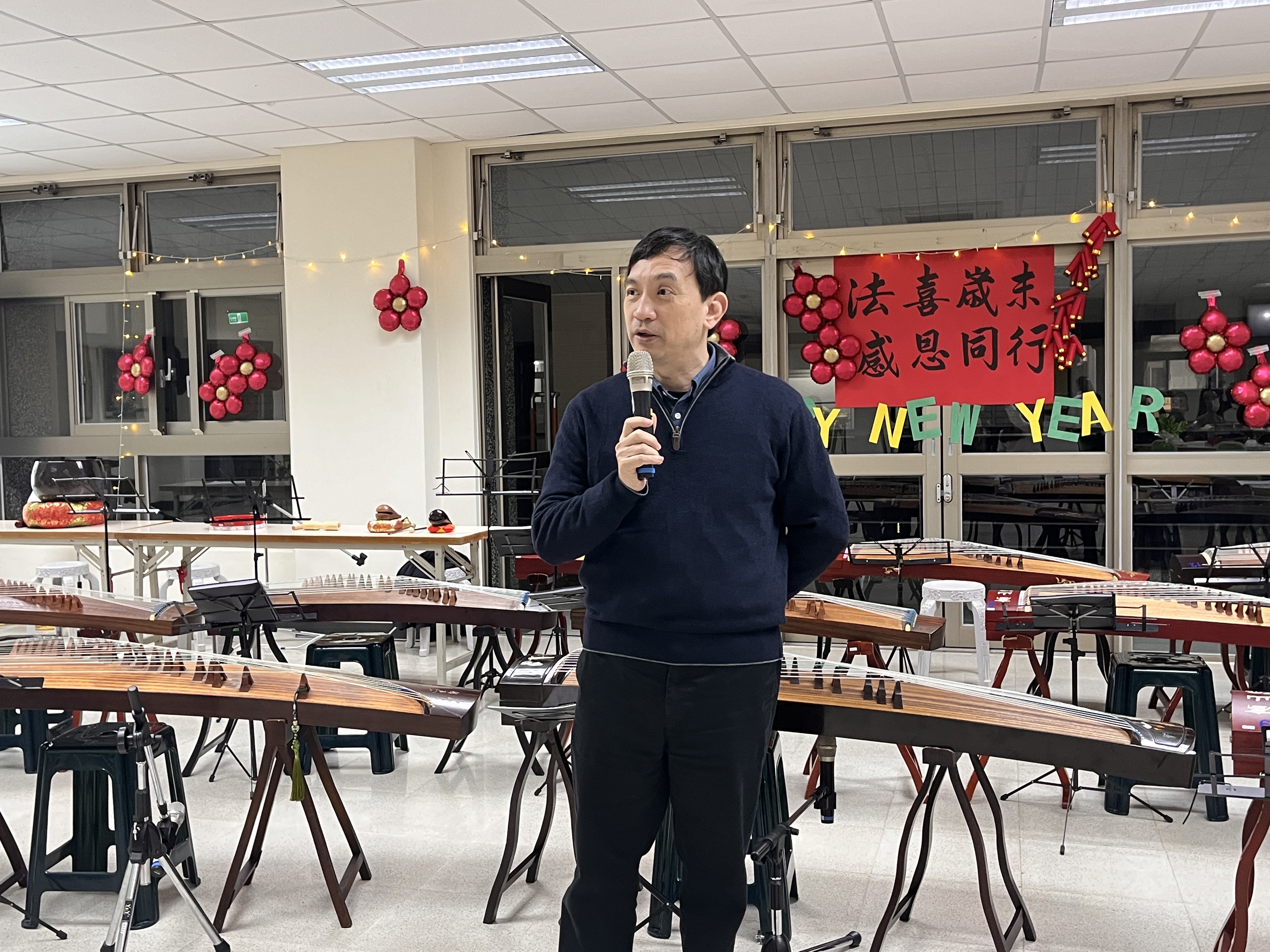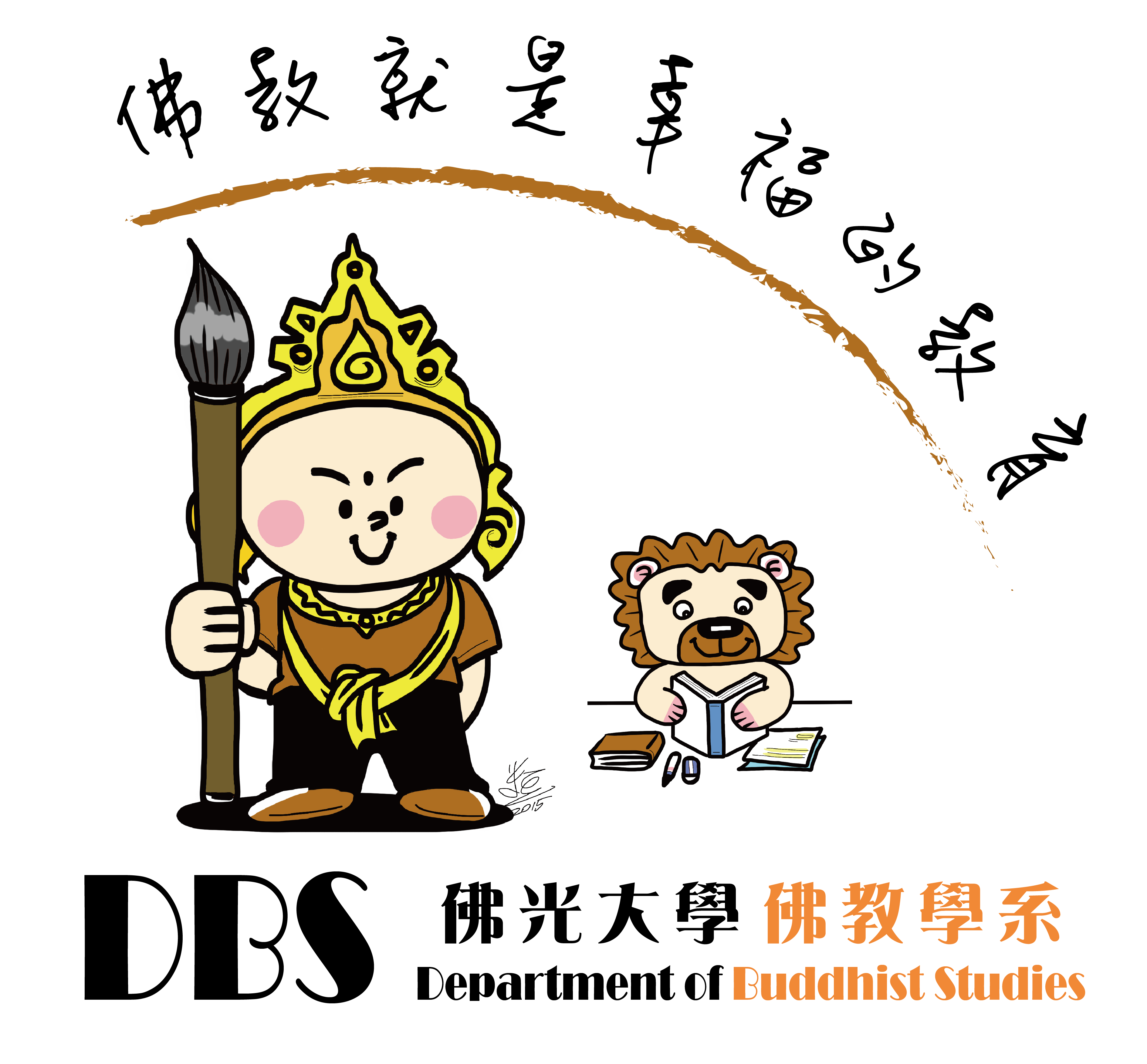The Importance of Hearing, Thinking, and Cultivating
Dean's 113-1 End-of-Semester Address to the Entire College
Wishing everyone a prosperous end of the year, today I would like to share my thoughts on the importance of hearing, thinking, and cultivating.
The first sentence of Buddhist scriptures usually begins with "Thus I have heard," which, if translated into plain language, means: "I have heard this before." This translation is not incorrect, but it raises the question of when, where, and from whom it was heard, followed by what content was heard. Thus, under the phrase "Thus I have heard," the scripture will continue with "At one time, the Tathagata was in... with... bhikshus," and only then comes the content of the teaching.
In other words, the earliest Buddhist scriptures were recounted by disciples who heard the Buddha's teachings. In an era without recording technology, they relied on their memory to recite the Dharma they had heard, and after a consensus among the community that compiled the scriptures, it was recognized as the Buddha's teachings and passed down. Therefore, the earliest Buddhist disciples are also referred to as "listeners." However, the "Thus I have heard" of the listeners does not mean "hearsay."
In modern society, where everyone can become a self-media, various information is rampant, making it difficult to distinguish between news and rumors, lies and truths. Therefore, we must be cautious, as much information, even if it claims to specify time, place, and people, may be used as deceptive rhetoric to lure people into traps or as slanderous means to discredit others. To avoid falling into such traps, one needs the skill of "right reasoning." Right reasoning, simply put, requires basic logical ability (inference), the ability to discern whether any statement heard is true, whether there is sufficient reason or evidence to support it, and whether the reasoning process is correct; even regarding what the Buddha said, the Buddha encouraged his disciples to reflect on it.
Not only thinking, but the Buddha also required his disciples to personally practice the teachings to verify their truth, which is "right intention, actions in accordance with the Dharma." The truth referred to here can be divided into the truth of worldly dharma and the truth of transcendent dharma. The truth of worldly dharma refers to whether the practices one engages in can promote goodness in the world; the truth of transcendent dharma refers to whether it can promote liberation from suffering for oneself and all beings. If the practices do not achieve the aforementioned directions or goals, they should not be regarded as conforming to the Buddha's teachings.
At the end of the year, may everyone pay attention to hearing, thinking, and cultivating to learn and verify the Buddha's teachings, resisting various forms of inversion, falsehood, lies, and deception, to collectively achieve a pure society of true goodness.

The first sentence of Buddhist scriptures usually begins with "Thus I have heard," which, if translated into plain language, means: "I have heard this before." This translation is not incorrect, but it raises the question of when, where, and from whom it was heard, followed by what content was heard. Thus, under the phrase "Thus I have heard," the scripture will continue with "At one time, the Tathagata was in... with... bhikshus," and only then comes the content of the teaching.
In other words, the earliest Buddhist scriptures were recounted by disciples who heard the Buddha's teachings. In an era without recording technology, they relied on their memory to recite the Dharma they had heard, and after a consensus among the community that compiled the scriptures, it was recognized as the Buddha's teachings and passed down. Therefore, the earliest Buddhist disciples are also referred to as "listeners." However, the "Thus I have heard" of the listeners does not mean "hearsay."
In modern society, where everyone can become a self-media, various information is rampant, making it difficult to distinguish between news and rumors, lies and truths. Therefore, we must be cautious, as much information, even if it claims to specify time, place, and people, may be used as deceptive rhetoric to lure people into traps or as slanderous means to discredit others. To avoid falling into such traps, one needs the skill of "right reasoning." Right reasoning, simply put, requires basic logical ability (inference), the ability to discern whether any statement heard is true, whether there is sufficient reason or evidence to support it, and whether the reasoning process is correct; even regarding what the Buddha said, the Buddha encouraged his disciples to reflect on it.
Not only thinking, but the Buddha also required his disciples to personally practice the teachings to verify their truth, which is "right intention, actions in accordance with the Dharma." The truth referred to here can be divided into the truth of worldly dharma and the truth of transcendent dharma. The truth of worldly dharma refers to whether the practices one engages in can promote goodness in the world; the truth of transcendent dharma refers to whether it can promote liberation from suffering for oneself and all beings. If the practices do not achieve the aforementioned directions or goals, they should not be regarded as conforming to the Buddha's teachings.
At the end of the year, may everyone pay attention to hearing, thinking, and cultivating to learn and verify the Buddha's teachings, resisting various forms of inversion, falsehood, lies, and deception, to collectively achieve a pure society of true goodness.


 College and Department of Buddhist Studies, FGU
College and Department of Buddhist Studies, FGU